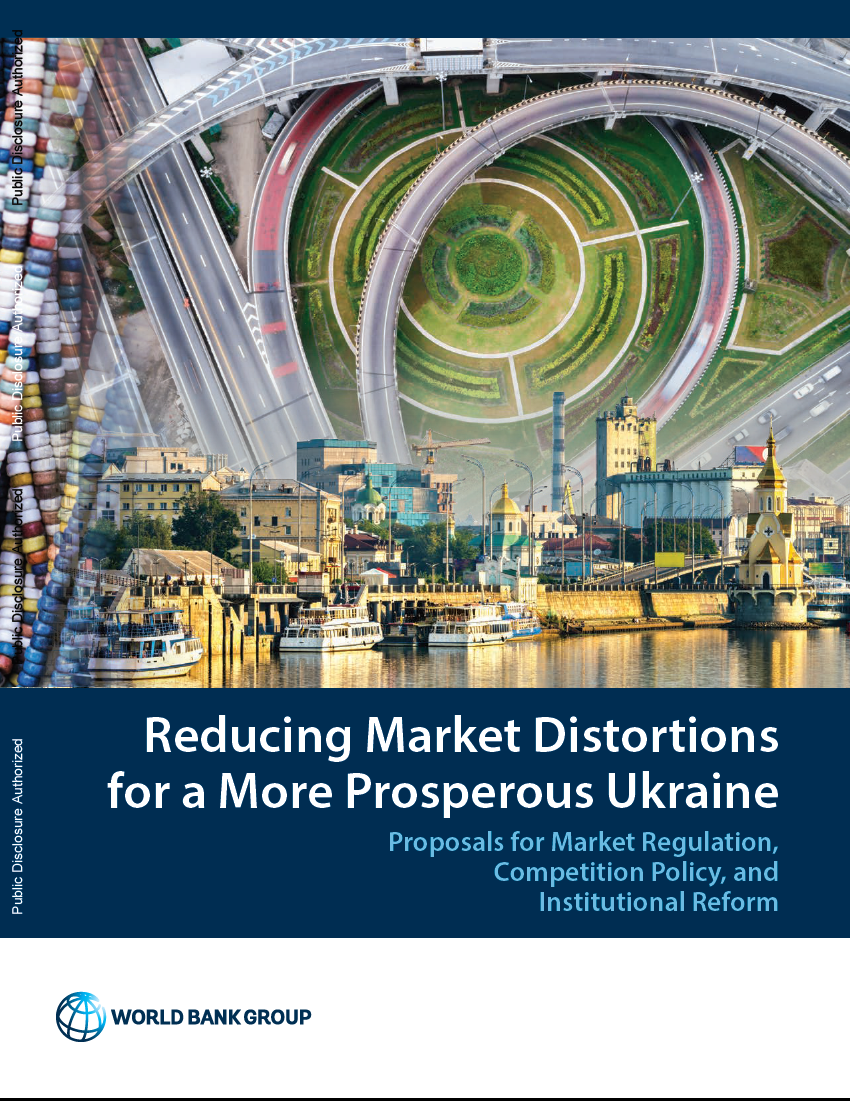Reducing Market Distortions for a More Prosperous Ukraine - Proposals for Market Regulation, Competition Policy, and Institutional Reform

This report is designed to support the Government of Ukraine as it strives to promote robust and sustainable growth through market-based reforms. The report examines Ukraine’s market conditions, regulatory framework, and approach to government intervention in terms of their consistency with vigorous competition and economic efficiency. The report’s findings inform a set of policy solutions to help Ukraine achieve its growth potential and create inclusive economic opportunities.
Ukraine has substantial scope to increase productivity by enhancing competition and implementing market-based reforms. Between 2010 and 2016, Ukraine’s annual total factor productivity (TFP) growth rate averaged just 0.9 percent, and the contribution of TFP to GDP growth was negative. The country’s industrial sector and export structure are resistant to change, and both remain focused on older industries such as steel, machine-building, and chemical production despite their low levels of productivity. Meanwhile, inflows of foreign direct investment have been very modest, especially in export-oriented manufacturing. Small and medium-sized enterprises play a limited role in Ukraine’s economy, and larger firms and business groups dominate most sectors—suggesting that competitive, market-driven processes of entrepreneurship, innovation, and productivity growth are not functioning properly. Firms’ perceptions of the power wielded by vested interests and the prevalence of cronyism, anticompetitive practices, and discrimination against foreign firms further underscore the country’s distorted playing field.
To address these challenges, this report proposes measures to improve Ukraine’s regulatory framework, institutional arrangements, and enforcement mechanisms within the context of a national competition policy. Although Ukraine’s economywide and sectoral product-market regulations are relatively progressive in principle, their application must be strengthened to ensure a level playing field supported by competitively neutral public policies. At present, multiple sectoral regulators and market institutions are not fully independent and cannot effectively execute their mandates. In addition, a high degree of vertical integration in network industries and key productivity-enabling sectors (e.g., electricity and gas) can increase risks of market foreclosure, and in these cases the unbundling of monopolies or dominant players could yield substantial efficiency gains that enhance the competitiveness of downstream sectors. Therefore, a holistic competition policy must go beyond antitrust enforcement to: (i) ensure a competitively neutral environment that minimizes the policy-based advantages of SOEs and politically connected firms; (ii) improve the predictability, consistency, and transparency of the regulatory framework, both in principle and in application; and (iii) support the development of robust, independent market institutions.



